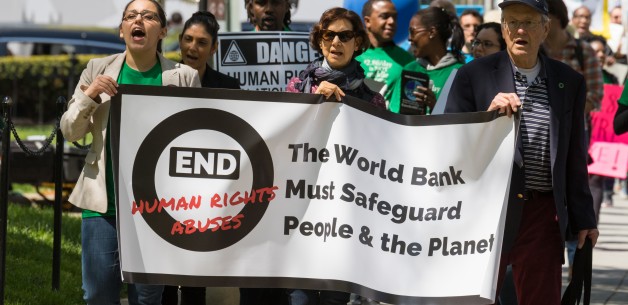As we prepare to celebrate Human Rights Day on December 10th, we stand with dozens of other civil society groups around the world that are calling on development finance institutions, governments, and businesses to Stand up for Human Rights in Development
On the 10th of December, Human Rights Day will be observed in honor of the adoption of the Universal Declaration of Human Rights by the UN General Assembly on this day in 1948. Its commemoration not only serves as a rallying cry for the many activists, organizations, and governments around the world that are already committed to stand up for human rights, it also offers institutions like the World Bank, a specialized agency of the UN, an opportunity to reflect on its own record vis-à-vis human rights—and, more importantly, how it might do better.
The World Bank’s twin goals—ending extreme poverty and boosting shared prosperity—ostensibly support fundamental human rights. All too often, however, the Bank overlooks key opportunities to promote the realization of human rights through its work or, in the worst cases, invests in projects and programs that lead to human rights abuses. These issues often stem from the Bank’s failure to engage throughout the project cycle with people and civil society that stand to benefit from or be harmed by its projects and programs.
Ensuring meaningful participation for people impacted by the development process is an important step the World Bank can take now to ensure its activities respect and promote the realization of human rights. Reorienting itself toward the people it is meant to serve is not only consistent with its current mission and founding principles, it would also lead to better projects and avoid costly mistakes—both financially and reputationally.
For decades, the World Bank has claimed its work promotes the realization of human rights, but has struggled to articulate a clear position or policy on its approach to doing so. Strengthening its current streams of work on “citizen engagement” and promoting an enabling environment for civil society in the context of its projects and programs, would serve as an important step forward in developing a more coherent approach to human rights that honors the commitments made in the Declaration 68 years ago.

